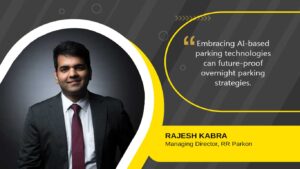 One of the most frequently discussed subjects in the real estate sector today is digitization and AI. These are breakthrough technologies that make existing procedures far more effective. It has never been riskier for businesses to be lax about embracing new technology than in this rapidly evolving digitally driven environment, and the real estate sector is no exception. Innovative digital solutions are now being actively explored by property and real estate developers due to their immense potential to deliver superior services and infrastructure to clients. Let us take a closer look at how these advanced technologies are transforming the housing infrastructure industry:
One of the most frequently discussed subjects in the real estate sector today is digitization and AI. These are breakthrough technologies that make existing procedures far more effective. It has never been riskier for businesses to be lax about embracing new technology than in this rapidly evolving digitally driven environment, and the real estate sector is no exception. Innovative digital solutions are now being actively explored by property and real estate developers due to their immense potential to deliver superior services and infrastructure to clients. Let us take a closer look at how these advanced technologies are transforming the housing infrastructure industry:
Smart Parking Solutions
Fewer parking spots are available in our cities every day as a result of the rise in two- and four-wheeler ownership, which leads to severe traffic congestion. Due to this, a lot of us extend our travel times by 20 to 30 minutes in order to access parking close to our final destinations. Sadly, neighbourhoods are now experiencing this problem as well. In residential neighbourhoods, parking spaces are often arranged according to the number of residences or apartments.
Parking space constraints in residential areas will only get more acute in the years ahead. The need of the hour is to optimise the management of existing parking spaces, rather than adding more, as the latter would be detrimental to infrastructure plans. This is now possible with the use of smart parking solutions such as apps, RFID, and IoT technology.
Owing to its key role in the integration of automated and smart parking solutions, IoT is hastening the adoption of newly created and innovative technologies in the transportation sector. We are currently witnessing the benefits of using these solutions as the introduction of auto parking technology has given customers connected systems, that can be utilized conveniently through their cell phones. IoT has made it possible to establish directions using roadside assistance, identify vacant parking spaces, and remotely open and close car doors. These systems are fully functional and focused on all aspects of data flow, including collecting, visualisation, processing, and storage.
Embracing AI-based parking technologies can future-proof overnight parking strategies. On a business and consumer level, AI-based technologies offer a variety of advantages, enabling you to maximize occupancy levels, identify and fix inefficiencies, and provide a markedly improved parking experience. How we live, work, and play has seen a significant shift as a result of AI-driven innovations, and will continue to adapt and evolve. Rather than merely getting from point A to point B, these solutions now encompass everything that happens for you and your consumers between those two touchpoints. The process of users signing up for parking permits, as well as the modification and denial of applications by parking facility officials, will be completely digitalized under smart permit management. This will enable consumers to be digitally checked in as soon as their car pulls into a smart parking lot, and they can be charged instantly without having to fill out any extra paperwork. This guarantees that no one uses the facility during peak hours without payment, even for a brief period.
Innovative construction:
A new technological revolution, which will emphasize the use of digital and internet technologies to establish fully automated manufacturing processes, is about to begin, and will have a significant impact on the global economy. For commercial enterprises, builders, security, hotels, hospitals, residential houses, and workplaces, the demand and desire for simplicity and flexibility in the operation and control of functions like heating, lighting, and access control systems, is ever growing.
The role of automation in manufacturing has been progressively increasing as the sector moves towards Industry 4.0 – which incorporates concepts such as Internet of Things (IoT), Cyber Physical System (CPS), Information and Communications Technology (ICT), Enterprise Architecture (EA) and Enterprise Integration – driving considerable gains in productivity and efficiency. Digitization, which boosts manufacturing’s productivity and adaptability, is largely focused on scale customization.
In this context, it will be incumbent on wire and cable firms to adopt Industry 4.0 innovations to develop superior and more intelligent products, as well as boost production, output, and growth.
In the wires and cables market, LS0H wires are a technologically ground-breaking development as they produce less smoke and odour as compared to other wires. Low smoke, zero halogen compounds not only perform better in terms of fire protection, but have also undergone continual improvement, broadening their scope of use and performance. Time and cost overruns are one of the key issues in real estate. The use of drone surveys, 3D maps and models, the extraction of blueprints, and the modelling of project schedule optimizers that take project delivery options into account and improve overall project planning – all of these innovations will collectively usher in a new era of ‘smart building’.

